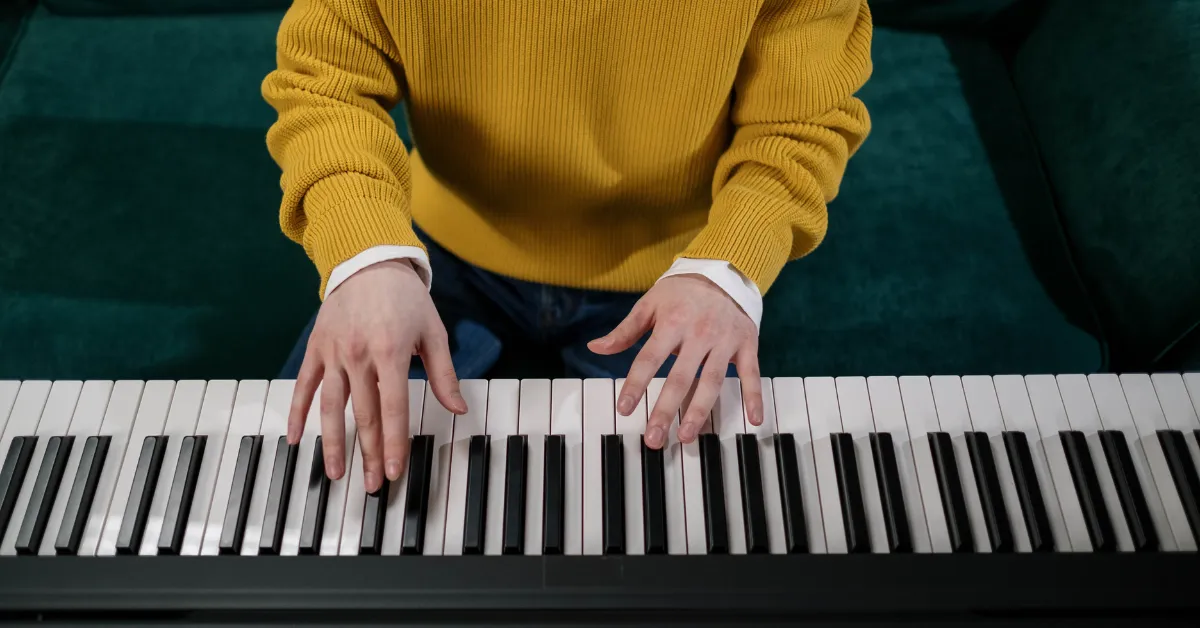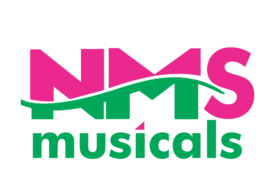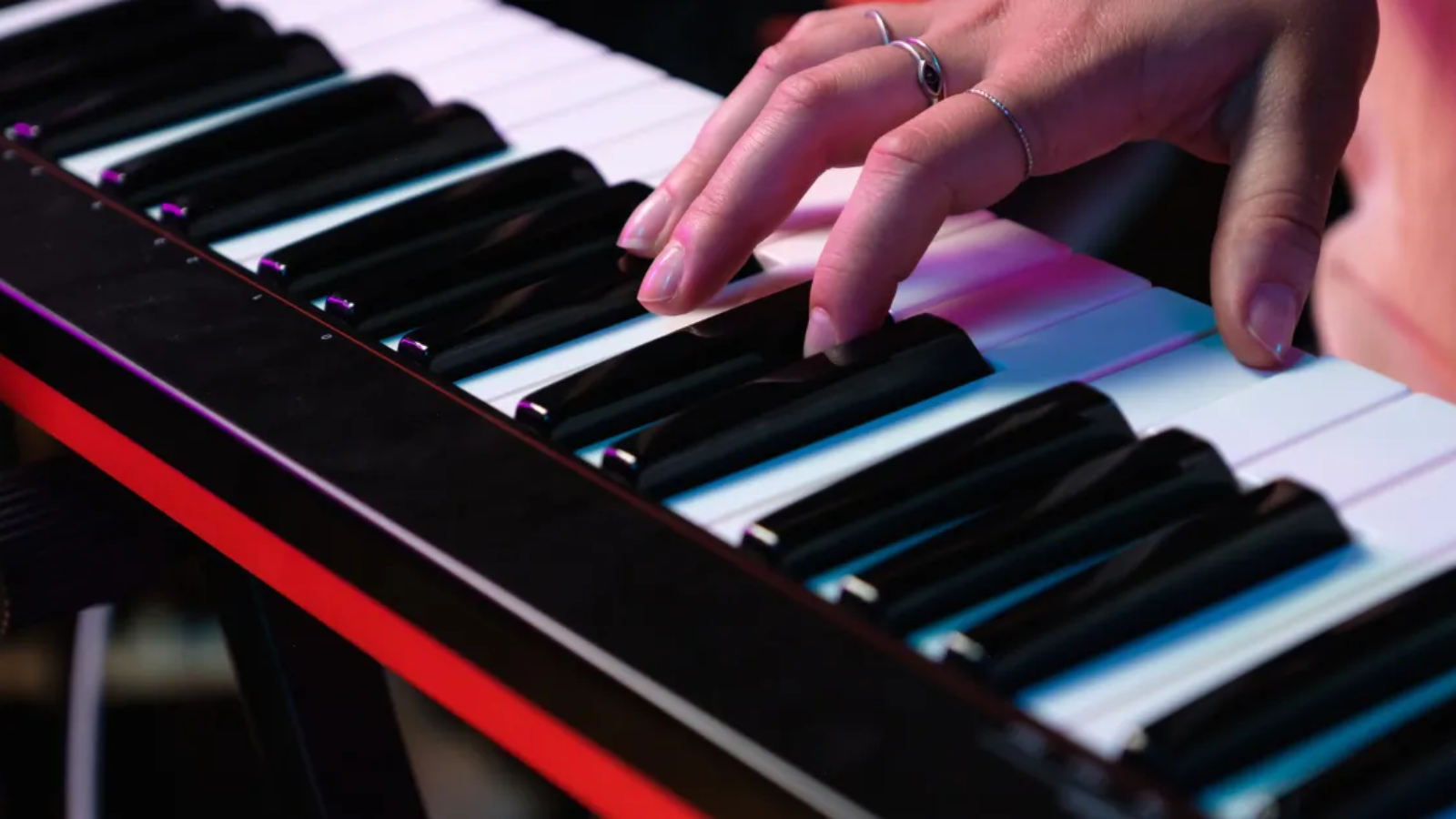Discover what to know before buying your first keyboard with expert tips for beginners

Choosing your first keyboard can be both exciting and overwhelming. Whether you’re starting your musical journey or purchasing for a child or loved one, getting the right keyboard is essential. In this guide, we’ll walk you through everything you need to know before buying your first keyboard—so you can make a smart, confident choice and begin playing with ease and enthusiasm.
1. Understand Your Purpose
Before heading to the music store or shopping online, determine why you’re buying a keyboard.
- Are you buying it for casual learning, school performance, or long-term musical development?
- Will the keyboard be used by a child or an adult?
- Are you looking to eventually transition to a piano?
Your purpose will help decide everything from budget to size and features.
2. Decide Between Keyboard and Digital Piano
A common beginner mistake is confusing a keyboard with a digital piano. They might look similar but serve different purposes.
- Keyboards are lighter, portable, and have a wide range of sounds and rhythms.
- Digital pianos simulate acoustic piano experience with weighted keys and authentic sound but are bulkier.
If you’re aiming to learn piano, go for a digital piano. If you’re exploring music creatively, a keyboard might be better.
3. Set a Budget That Makes Sense
Keyboards come in a wide price range—from budget-friendly beginner models to professional-grade instruments.
- Beginner keyboards start around ₹6,000–₹15,000.
- Mid-range keyboards with better features range from ₹15,000–₹30,000.
- Premium digital pianos start at ₹30,000 and go beyond ₹80,000.
Choose a budget that aligns with your musical goals, and consider brands with a good resale value.
4. Consider Number of Keys
The number of keys directly impacts how much music you can play:
- 61 keys – Most common for beginners. Great for learning and portability.
- 76 keys – Offers more range for intermediate players.
- 88 keys – Full piano range. Ideal if you’re serious about piano training.
If you’re buying for a child or new learner, 61 keys are perfect to start with.
5. Look for Touch Sensitivity and Weighted Keys
Not all keyboards feel like a real piano. Important features to consider include:
- Touch-sensitive keys: The harder you press, the louder the sound—just like a real piano.
- Weighted keys: These mimic the resistance of a real piano. Great for muscle development.
A keyboard without touch sensitivity can limit your expression and growth.
6. Explore Sound Quality and Polyphony
Good sound makes a huge difference when learning. Check:
- Voice variety – Does the keyboard offer multiple instrument sounds?
- Polyphony – Refers to how many notes can play at once. Minimum 32-note polyphony is good for beginners.
- Sound engine – A better sound engine gives a more realistic tone.
Avoid keyboards with flat, dull tones—especially if your goal is long-term learning.
7. Check Built-in Features and Connectivity
Beginner keyboards often come with useful tools and functions:
- Learning modes and built-in lessons.
- Accompaniment features for rhythm support.
- USB or MIDI ports for connecting to learning apps or computers.
- Sustain pedal input – Important for classical training.
- Recording features – Helpful for practice and review.
These extras can accelerate your learning process.
8. Evaluate Brand Reputation and After-Sales Support
Some brands are better known for their durability and support. Top keyboard brands include:
- Yamaha
- Casio
- Roland
- Korg
Choose a brand that’s easily serviceable in your city. Check for warranty, spare parts availability, and service center access.
9. Try Before You Buy (If Possible)
Whenever possible, test the keyboard before purchasing. Pay attention to:
- Key action and response.
- Volume range and sound quality.
- Weight and ease of use.
- Display clarity and control layout.
If buying online, watch demo videos and read customer reviews to get a feel for the product.
10. Don’t Forget Essential Accessories
To start playing comfortably, you might need:
- Keyboard stand – Adjustable height for sitting or standing.
- Bench or stool – Comfort is key during long practice sessions.
- Sustain pedal – Mimics piano sound holding.
- Headphones – Practice silently without disturbing others.
- Carrying case or cover – Protect your instrument from dust and damage.
Some beginner packages include these accessories—check before buying separately.
11. Age and Hand Size Matter
For children under 8 years, lightweight keyboards with smaller keys can be better. As they grow, transition to standard key sizes. Adults should always go for full-size keys to develop proper technique.
12. Think About Portability
If you plan to carry your keyboard to classes, gigs, or school events:
- Choose a model under 8kg.
- Look for a battery-powered option.
- Ensure it comes with a compact adapter and gig bag.
Portability should never come at the cost of essential features, so balance wisely.
13. Consider Online vs. Offline Purchase
Buying online might be more cost-effective, but visiting a store has its advantages:
- Try before you buy.
- Ask questions and get personal recommendations.
- Take advantage of in-store service and setup.
If ordering online, buy only from reputed platforms or directly from the brand’s website.
14. Beware of Second-Hand Traps
A used keyboard may seem like a good deal but check:
- Missing keys or broken buttons.
- Speaker issues or buzzing.
- Battery corrosion.
- Outdated models without current features.
Unless you’re experienced or guided by a teacher, avoid second-hand deals as a beginner.
15. Learning Support Is Key
No matter how good your keyboard is, it’s your learning that matters most.
- Choose keyboards with built-in learning apps or lesson modes.
- Subscribe to online music platforms or YouTube tutorials.
- Consider enrolling in beginner keyboard classes near you or online.
The combination of good gear and consistent practice creates musical success.
Conclusion
Choosing the right keyboard doesn’t have to be difficult. With a clear understanding of your purpose, budget, and musical goals, you can confidently select a keyboard that supports your journey. Remember to prioritize features like touch sensitivity, sound quality, and brand reliability. Most importantly, pair your keyboard with consistent practice and learning resources. Whether you’re a young learner or an adult beginner, the right keyboard is your first step toward an exciting musical future. So, don’t wait—make that smart choice today and let your music journey begin.
At NMS Musicals, we offer a comprehensive range of musical instruments, including percussion, string, wind, and keyboard instruments. Our services encompass sales, expert servicing, and the manufacture of leather instruments. Explore our diverse collection and find the perfect instrument to suit your musical needs.
Visit our website to browse our offerings: nmsmusicals.in
For a closer look at our products, check out our shop page: nmsmusicals.in/shop
Stay connected with us through our social media channels:
- Facebook: https://www.facebook.com/nmsmusicalinstruments/
- Instagram: https://www.instagram.com/nmsmusicals/?hl=en
- YouTube: youtube.com/@nmsmusicals
Our shop locations are:
- Puducherry: 149, Perumal Koil Street, Heritage Town, Puducherry, 605001.
Map Link: https://maps.app.goo.gl/ejDwBBFEJmd3szxk7 - Chennai: No: 1, 1st Floor, Kandigai Street, TVS Nagar, Korattur, Chennai – 600076.
Map Link: https://maps.app.goo.gl/7oXmB6X7KQsqeuuw9
For inquiries, contact/Whatsapp us at 9500663895 or email us at laxman.m89@gmail.com.
Discover the world of musical instruments with NMS Musicals today!
For a visual overview of our percussion instruments, watch the following video:


 Cart is empty
Cart is empty 
Leave A Comment
You must be logged in to post a comment